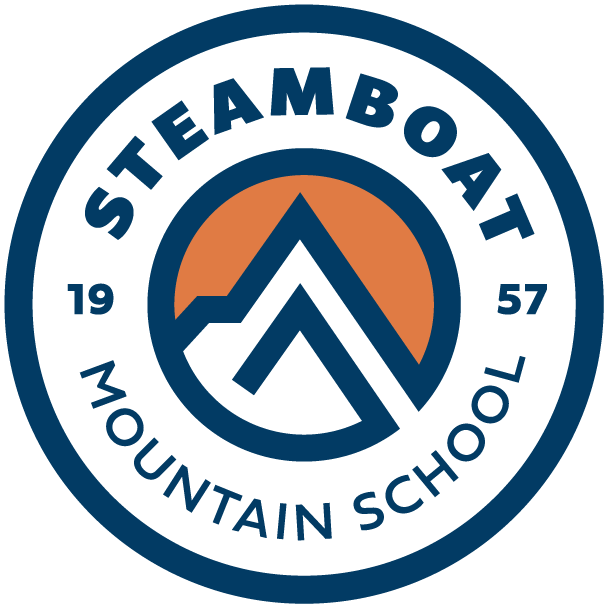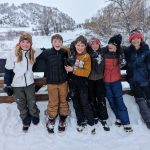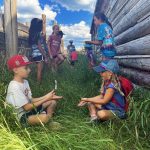Risk Management, Teamwork, and Self-care in a Backcountry Environment
Mountain Connection, January 16, 2025
By: Jed Donnel
As the snow has piled up amid recent storms, the allure of Steamboat’s outdoor offerings has come into sharper focus. To help students enjoy such adventures safely and responsibly, SMS offers a course in backcountry skiing and riding. This year, it is led by three faculty members, Michael, Kaiti, and Kevin, each of whom have an AIARE Rec Level 2 Avalanche Safety certification, AIARE Avalanche Rescue certifications, and experience working with local backcountry safety organizations such as Routt County Search and Rescue. At the resort, and even despite the inevitable risks that accompany backcountry travel, it’s often easy to take the relative safety for granted; ski patrol mitigates the odds of avalanche, dangerous obstacles are often marked, and the boundaries are clear. In the backcountry, however, no such precautions exist, and while the terrain may be visually inviting, navigating it requires a different level of knowledge. As Michael states, “We’re working with students to develop a heightened awareness of their surroundings and deeper considerations of risk, judgment, and decision-making. Therefore, we’re encouraging them to engage with their environment in a different way than they do when skiing on the ski resort.” Kevin adds, “I think the most useful skills that the students acquire are risk management, teamwork, and self-care in a backcountry environment.” To do so, students build from the foundations emphasized across the larger Outdoor Ed program at SMS, including expedition behavior, awareness of leadership styles, and tolerance for adversity, all of which have various applications well beyond backcountry skiing. Michael states, “the course challenges students to communicate well, problem solve, and think about the bigger picture outside of themselves. They must consider how all the different pieces of the puzzle, including their fellow skiers and an unpredictable and indifferent environment, come together.”
Beginning in late November with the start of trimester two, and long before we had enough snow to practice their work in the field, students began their studies in the classroom. In addition to guidance from the instructors, much of the coursework stems from three publications: Mike Clelland’s and Allen O’bannon’s Allen & Mike’s Avalanche Book: A Guide to Staying Safe in Avalanche Terrain, Ed Power’s Dragons in the Snow: Avalanche Detectives and the Race to Beat Death in the Mountains, and the AIRE Back-country Decision-Making Guide Fieldbook. The classroom instruction provides a critical background of material for students to know in concept before applying in reality, including readings and quizzing on assessing terrain and snowpack, packing correctly, and avalanche rescue techniques. Moreover, the course includes a comprehensive rubric and accompanying assessment in categories ranging from the pragmatic of Navigation and Risk-Management to the interpersonal of Communication and Stewardship. Each category covers an array of related skills, and students receive assessments for each on a 1-4 scale: novice, approaching, proficient, and advanced understanding. As such, they begin to more closely resemble their experienced instructors, and while the course does not include certification, they develop a comprehensive understanding of both their attributes and limitations. With the recent snows of late, we now have plenty of great opportunities to get out in the field, including during POPS each week or even within Winter Wonderment excursions. Grace, a senior in the class, states, “I think some of the most enjoyable aspects of the backcountry class are being able to explore new areas I have never skied before and being in the outdoors with my friends during school hours. One skill that I have developed is perseverance. Sometimes skinning up a pitch is hard work and not much fun, but I’ve learned to keep going and not give up because the higher I go the better the skiing down will be.” Kevin adds, “I love watching the kids challenge themselves and come back exhausted but smiling because they earned their turns and spent time in some beautiful, less-traveled areas.”



